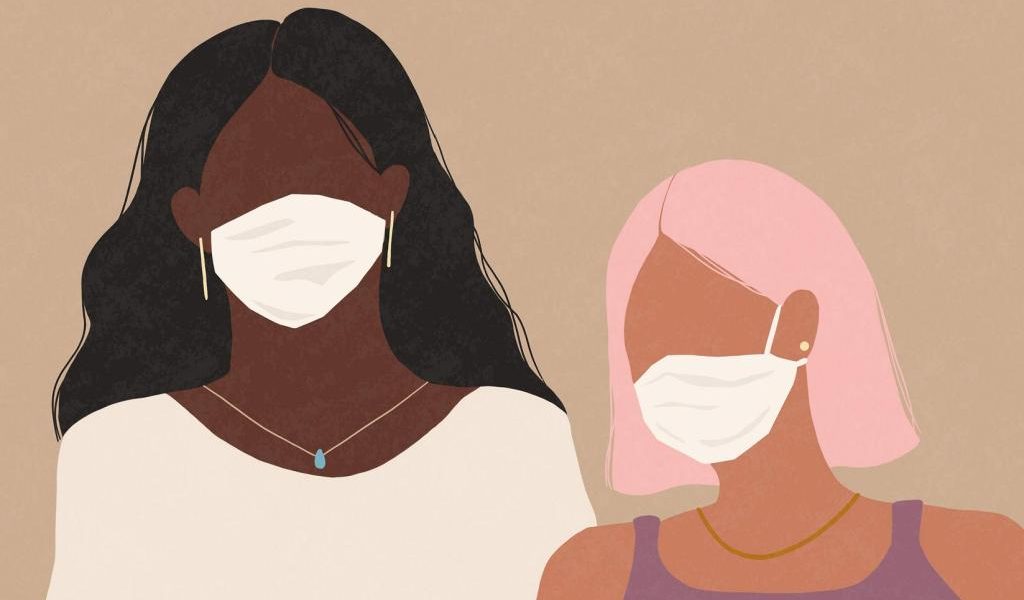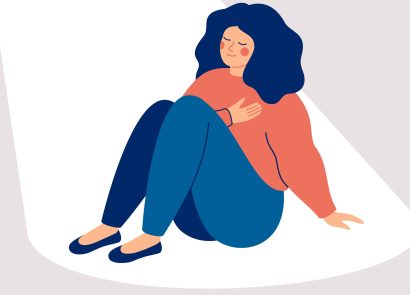Our skin has taken a hit during lockdown and now, there’s a new kind of acne in town. Sufferers, take note
If you’re familiar with blackheads, excess oil and clogged pores, you’ll know that acne unfortunately doesn’t stop in our teens for some of us, and anyone who said it would was talking BS, frankly. But as well as the common causes, such as a change in hormones, your menstrual cycle and your diet (seriously, when can we catch a break?), we now have another factor in the mix: face masks. Mandatory in shops and on public transport, masks are in place to keep us safe, but how can we combat the skin woes that can be a consequence of wearing them? From the causes of maskne to preventing irritation and breakouts, our experts have got you covered.
Face it
Your ready-to-leave-the-house checklist has gained another member, but for some this has led to an unpleasant side effect. So what is this new type of skin condition? “Maskne is the word used to describe the irritation and breakouts that appear around your nose and mouth as a result of wearing a face mask,” explains Dr Rekha Tailor, aesthetic practitioner at Health & Aesthetics (healthandaesthetics.co.uk). And, on top of triggers for inflammatory skin conditions (think: eczema and psoriasis), maskne is one of the most prevalent skin concerns post-lockdown Dr Rekha sees in her clinic. When you wear a face mask, you’re causing air and moisture to be trapped, reducing the oxygen to the skin – that normally helps to get rid of toxins – and causing spots. “The friction between the material and the skin can cause irritation, leading to breakouts on the lower part of your face,” states cosmetic doctor Dr Rita Rakus (drritarakus.co.uk). “Those who already suffer from acne and eczema, or who have hormonal skin, may experience the negative effects from wearing a face mask more, as skin becomes even more irritated.”
Managing maskne
Acne can also have some unwelcome psychological effects, too. According to one study, acne sufferers can have low self-esteem, negative body image and increased levels of anxiety and depression. The good news? There are ways to treat and manage maskne, like defending yourself with products that you can apply to your face every day. “To avoid irritation, you can use a gentle cleanser to wash your face thoroughly and keep it hydrated,” suggests Dr Rita. “Dry skin can also lead to irritation and acne breakouts, which is why skin needs to be cleansed daily.” Her go-to? “The Dr. LEVY 3Deep Cell Renewal Micro- Resurfacing Cleanser (£39, cultbeauty.co.uk) is a great gentle exfoliator to use, particularly in the summer, as it acts as a fast skin-renewing product to promote fresh and radiant skin.” Harley Street consultant dermatologist Dr Hiba Injibar (dermasurge.co.uk) agrees. She says your night time routine is just as important to help with your trouble areas. “Choose a light, oil-free moisturiser to avoid your pores being clogged and change your pillowcase regularly for an optimal cleanskin environment.” Ensuring that your mask is clean and free from bacteria can also help to protect your skin, according to Dr Rekha. “Wash your mask regularly, as this helps to reduce the build-up of bacteria inside the mask and therefore reduces the amount that comes into contact with your skin.”
Cover up
While we’re on the subject, wearing a face mask has arguably become something of a fashion statement, with a host of different designs to choose from, but it’s not just about going for a pretty floral pattern, warn our experts. “When picking a mask, it’s worth choosing one that fits properly,” explains Dr Rekha. “Although woven fabrics are breathable, cotton will absorb sweat, which isn’t ideal for your skin.” To avoid the irritation that sometimes comes with wearing a mask, choose one that isn’t going to move around as much, says Dr Rita. “Consider those which cover your face and your nose and have fastenings to keep the mask securely in place to limit how much it can move across your face. If your skin is sensitive to certain materials, it’s best to avoid these in case it leads to a skin reaction.” And the aftercare? “Always wash reusable masks using fragrance-free powder to stop irritation and wash away all the pollutants that can also cause pores to become blocked, resulting in breakouts,” says Dr Hiba. “If yours isn’t reusable, make sure you use a fresh mask after each out-of-house activity.”
Throwing shades
You may have seen beauty bloggers pay more attention to their eye make-up since the introduction of wearing a face mask (contouring is so last season), but can wearing these products contribute to maskne? “Wearing make-up under a mask can cause breakouts, as your skin perspires underneath it, trapping oil and dead skin cells, and clogging your pores, thus allowing for bacteria to sit on your face,” explains Dr Hiba. “Splash your face with some water, dab with a clean towel and use a glycolic acid pad before applying your make-up after taking your mask off.” Dr Rita also suggests going make-up free when wearing a mask. “If you suffer from breakouts, cosmetic products can sometimes block pores, so wearing a face mask on top of this can cause a flare-up,” explains Dr Rita. What if you can’t leave the house without it? “For some coverage, use a tinted SPF, such as the ZO Skin Health Sunscreen + Powder SPF30, which is available in three tinted shades.
Mask musts
Breath Happy Face Mask, £19.99, breathe-happy.com

Day Solution Moisturiser, £20, greenpeople.co.uk

Age-Delay Eye Concentrate, £42.80, dalchemyskincare.uk

PATCH natural bamboo strip bandages with Aloe Vera, £6.99, hollandandbarrett.com























